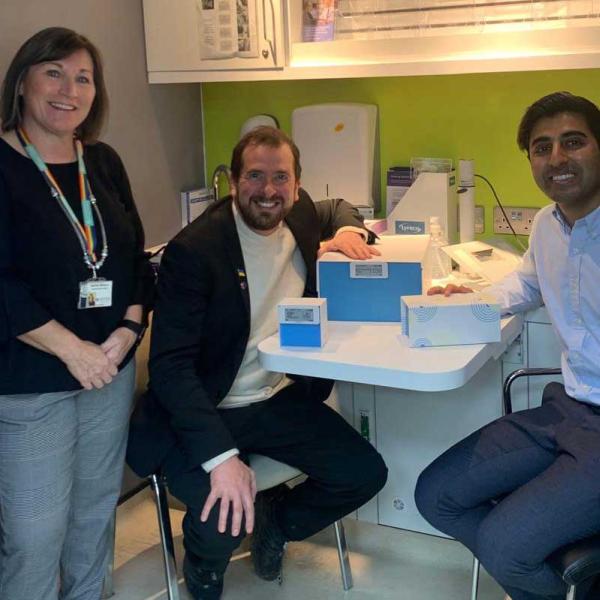Smart medication boxes to increase independence upon hospital discharge
A new model of self-care in medicines management among older people.
The challenge
Patients recover more quickly at home after hospital treatment. However, concerns about their ability to take medication independently can lead to a longer hospital stay than necessary. In more extreme situations, it may lead to a care package, with a carer administering medications for them at home.
A substantial body of research has shown that people's confidence in managing their medication declines after an extended hospital stay, particularly impacting older people who may be on a large number of medications.
The solution
Backed by a £1 million Innovate UK Grant, we partnered with CONNECT Care to deliver a first-of-its-kind 16-month project.
The project aimed to provide a blueprint that could be scaled to support patients right across the UK in managing their medicines safely and independently.
Participants identified at the point of discharge from the hospital were assessed and supplied with a CONNECT Care 'smart' medicine storage box. The smart box uses flashing lights and buzzing to remind the user to take medication doses at the correct time. Analytics were available to the care team to allow for remote monitoring of compliance and to aid decision-making about ongoing care package requirements.
The wraparound support combined personalised assessments and smart software to connect the dots, ensuring:
- patients felt empowered
- their wider support network had all the information they needed in one place
Using the CONNECT Care platform enabled joined-up care.


The results
The project delivered through the reablement pathway test bed provided access to service users discharged from the hospital with changes in their medication circumstances. The new approach to reviewing individuals' needs and abilities, incorporating a more comprehensive assessment method and the addition of technology, was evaluated both by Edinburgh University and internally.
The educational aspects were paramount in delivering perceived benefits to service users. The technology supplied valuable data regarding service user behaviour, which was considered a significant advantage in aiding decision-making when operationalising care. For example, the technology indicated that certain service users could manage medications independently and determed optimal times to cease visits. This project resulted in:
- fewer required visits for these patients
- capacity and financial benefits
- a reduced carbon footprint, aligning with Oxfordshire County Council's strategic goals
CONNECT Care's smart box design went through several iterations, influenced by the co-production element - the needs and preferences of the residents involved in the project. This resulted in an end project with greater commercial opportunities and a proven evidence base and academic evaluation.
'Smart' medicine boxes to prompt patients launched in Oxfordshire - BBC News
Innovate Oxfordshire’s unique approach to fostering technological advancements within the public sector is unparalleled. Their expertise and collaborative approach have enabled us to navigate the complexities of the market with confidence, driving growth and delivering outcomes that resonate on a commercial and social level.